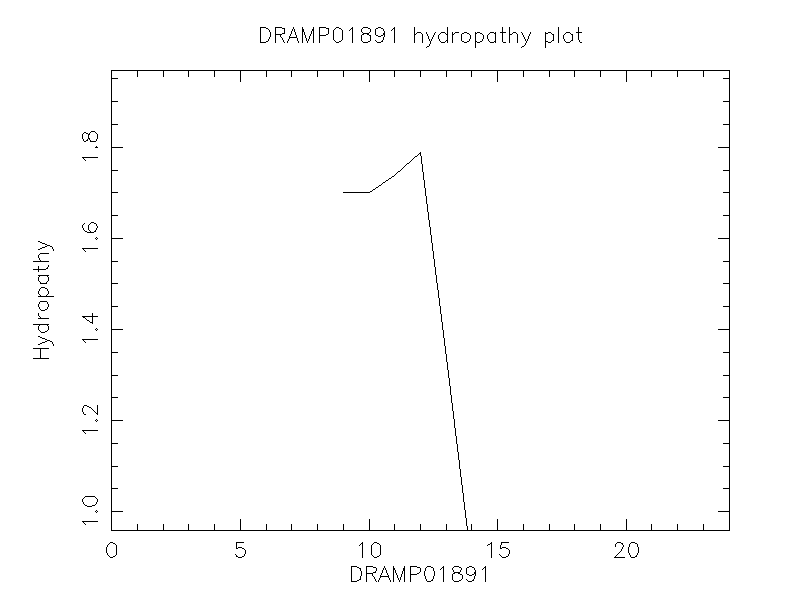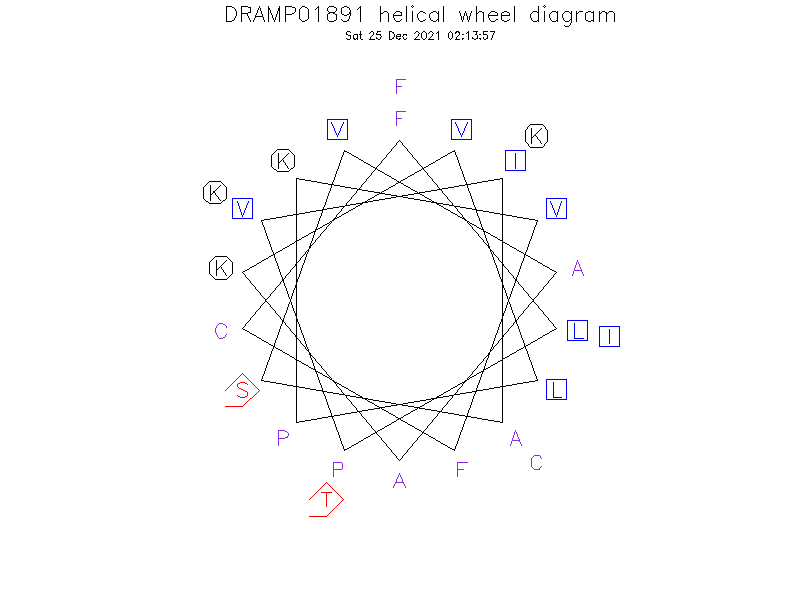General Information
-
DRAMP ID
- DRAMP01891
-
Peptide Name
- Brevinin-1VLc (Frogs, amphibians, animals)
-
Source
- Rana vaillanti (Central American frog)
-
Family
- Not found
-
Gene
- Not found
-
Sequence
- FLPVIASVAAKVLPKVFCFITKKC
-
Sequence Length
- 24
-
UniProt Entry
- No entry found
-
Protein Existence
- Protein level
Activity Information
-
Biological Activity
- Antimicrobial, Antibacterial, Anti-Gram+, Anti-Gram-, Antifungal
-
Target Organism
-
- Gram-negative bacterium: E. coli (MIC=50 µM);
- Gram-positive bacterium: S. aureus (MIC=1.5 µM).
- Yeast: C. albicans (MIC=3 µM).
-
Hemolytic Activity
-
- [Ref.19379837] LC50=7 mM against human erythrocytes
-
Cytotoxicity
-
- [Ref.19379837] LC50=4mM against HepG2 hepatoma-derived cells
-
Binding Target
- Not found
Structure Information
-
Linear/Cyclic
- Cyclic
-
N-terminal Modification
- Free
-
C-terminal Modification
- Cyclization (Cys18 and Cys24)
-
Nonterminal Modifications and Unusual Amino Acids
- Disulfide bond between Cys18 and Cys24.
-
Stereochemistry
- L
-
Structure
- Not found
-
Structure Description
- Not found
-
Helical Wheel Diagram
-
PDB ID
- None
-
Predicted Structure
- Please click DRAMP01891_predicted_structure.pdb to download.
Physicochemical Information
-
Formula
- C127H208N28O27S2
Absent Amino Acids
- DEGHMNQRWY
Common Amino Acids
- KV
Mass
- 2623.34
PI
- 9.7
Basic Residues
- 4
Acidic Residues
- 0
Hydrophobic Residues
- 14
Net Charge
- +4
-
Boman Index
- 24.6
Hydrophobicity
- 1.329
Aliphatic Index
- 125.83
Half Life
-
- Mammalian:1.1 hour
- Yeast:3 min
- E.coli:2 min
Extinction Coefficient Cystines
- 125
Absorbance 280nm
- 5.43
Polar Residues
- 4
DRAMP01891

Comments Information
Function
- Brevinin-1VLc showes particularly high growth-inhibitory potency (MIC < or =3 microM) against a Gram-positive microorganism Staphylococcus aureus and the opportunistic yeast pathogen Candida albicans and potent cytolytic activity (LC(50)< or =8 microM) against both human erythrocytes and HepG2 hepatoma-derived cells. The peptide ia also active against a Gram-negative microorganism Escherichia coli (MIC< or =50 microM).
Literature Information
- ·Literature 1
-
Title
- Purification of peptides with differential cytolytic activities from the skin secretions of the Central American frog, Lithobates vaillanti (Ranidae).
-
Pubmed ID
- 19379837
-
Reference
- Comp Biochem Physiol C Toxicol Pharmacol. 2009 Aug;150(2):150-154.
-
Author
- Conlon JM, Raza H, Coquet L, Jouenne T, Leprince J, Vaudry H, King JD.

